IDF 2013: highlights from the conference
Bay Trail, wearables and mobile share the spotlight
There was plenty to check out at this year's Intel Developers Forum, but the biggest news of the conference is the introduction of the Atom chips previously known as "Bay Trail." The Atom Z3000 series is looking straight at tablets and the low-power computing market.
Look for it to start hitting consumer devices in spring 2014.
Game-changing upgrade to Extreme Tuning Utility
You may not know what Intel's XTU software is, but know that it's a hugely powerful overclocking utility that the company upgraded this week.
AppTune comes with a quick, dynamic, per-application overclock, and may be the most important thing to happen to PC overclocking in recent years.
DDR4 is real, just don't hold your breath
Chomping at the bit for DDR4? It's coming, but don't expect it hit desktops until 2015 at the earliest. That's the message coming from Intel, though Samsung is doubtful we'll see the memory upgrade until after 2015.
While the wait is disappointing, the promise of DDR4 is enough to keep us interested, no matter how long it takes.
Hands on with the Dell Venue
Dell is out with a new 8-inch tablet, and while the promise of Windows 8.1 and a sub-$300 price is strong, there are plenty of negatives about this new machine.
Are you a pro? Subscribe to our newsletter
Sign up to the TechRadar Pro newsletter to get all the top news, opinion, features and guidance your business needs to succeed!
Next-gen Broadwell silicon joins the show
Intel was proud to show off its new 14nm architecture at IDF, announcing that it's due to ship by the end of the year.
The benefits are bountiful, and while Intel didn't reveal any benchmark results, Broadwell stands to bring power without sucking battery at launch.
Banking on convertibles
What will save Intel's PC sales? Two-in-one convertibles, that's what.
The company is pushing the "new" category as part of its move into mobility, and thinks it could give the slumping PC market a shot in the arm. How successful will this be? It all comes down to how desirable these convertibles are.
Transformer Book T100 hands on review
What if I told you there was a convertible ultrabook with Windows 8.1 and 11-hours of Bay Trail battery life on the way from Asus? What if I told you it has microSD support and starts at just $349?
Well that's the Transformer Book T100, which Asus pulled out of its sleeve behind closed doors here at IDF. We had some hands on time with it, and while it wasn't without its flaws, it's looking like a great value.
Google, Intel announce new Haswell Chromebooks
Who knew Chrome would make an appearance at IDF? Google certainly did as it unveiled three new Chromebooks from Toshiba, HP and Acer plus a Chromebox by Asus. All run Chrome, all are powered by Haswell.
The new machines are light on details, but you can be sure they have long-lasting battery.
Look for them in the coming months.
Venue makes a Dell comeback
What's old is now new as Dell is reviving the Venue name, this time sticking it on a tablet running Windows 8.1 instead of a handset.
The new device comes with an 8-inch screen and the conference darling Bay Trail processor, but other than that little details are known about the Venue.
ThinkPad T440s hands on review
A full HD display, 12-hour battery life and a Haswell i7 chip - Lenovo has really pulled out all the stops.
The ThinkPad T440s is the luxury model in Lenovo's new ultrabook line. We took it for a spin on the show floor, and now we're waiting in anticipation to give it a full review.
Bay Trail: how it performs
Sorry - we mean the Z300 series Atom processors, as Bay Trail was just a codename. We got the chance to test out Intel's new chips for tablets, finding that indeed the company's performance claims live up to the self-imposed hype.
But can Bay Trail bond with Windows 8 (and Windows 8.1)? That is indeed the question.
ThinkPad T440 hands on review
Does Lenovo's Haswell packing ThinkPad laptop really last for 17 hours on a single battery charge? Yes, but only if you get a second charging cell. Even without, the ThinkPad T440 can claim 12 hours of battery life, which is none too shabby.
Besides a chunky frame, the T440 has some high points, but Lenovo has a lot of work left to do to cut it in the Ultrabook world.
Lenovo's new laptops
Lenovo is really making a splash at IDF, specially for the business set. The company announced seven new ThinkPads specifically geared towards its commercial customers. Haswell is found humming along, as are claims of better battery.
Wearables, future handsets and more on Day One
Intel came out roaring on Day One of IDF 2013. The company announced a new SoC family called Quark, designed to fit into tiny machines such as wearables. Though the company has no plans to build its own wearable tech, it floating Quark out to partners. The company also has a prototype bracelet to show Quark in action.
Intel also showed off a 22nm handset prototype, one that creates a 50% power boost and better battery life.
CEO Brian Krzanich also talked up the advancement of its 14nm manufacturing process, which will deliver devices with a 30% power improvement over Haswell-type Core chis. Devices with 14nm are due to start rolling out in 2014.
Finally, Krzanich announced that the company will have tablets below $100 (about £63, AU$107) by the holidays, so look for less power pull and more performance on the cheap come Christmas time.
Below you'll find out what we expected from Intel before the conference officially started:
We anticipate a conference close to Build 2013, though perhaps with a bit more focus on hardware. There will, of course, be plenty of time spent on the nitty gritty.
Does that a boring conference make? Not in the slightest. Intel had a bustling first half of the year, and we expected that trajectory to continue through IDF.
We're sure to hear plenty on Haswell, plus where PCs fit (or don't) next to mobile devices. There's Intel TV to talk about, and potentially some words on wearables. We're gearing up for it, so read on to find out what we think you should expect from this year's proceedings.
1. Intel TV time
Perhaps the most intriguing, out-of-box product cooking at Intel right now is its internet TV service.
It was way back in February that the company confirmed it was indeed working on a web TV product, with Corporate Vice President at Intel Media Erik Huggers offering this as to why the chip maker wanted to get into the TV biz:
"[You] need to control everything - the chip, the operating system, app layers, the sensors. That's sort of the reason why we're there. If there were platforms that could deliver exactly what we had in mind, we would work with that."
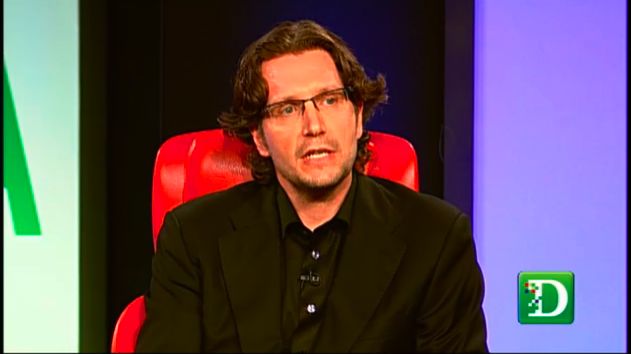
However, things have been fairly quiet since. The last real news related to ITV came at the end of July, when it was revealed in a Wall Street Journal report that an accompanying set-top box won't have facial recognition capabilities.
We hope, and fully expect, Intel TV (or whatever it's called) to be laid on the table during IDF. In announcing the service, Huggers said the group working on it was comprised of people from Apple, Netflix and Google. Add Intel's own tech savvy to the mix, and this sounds like a product with a lot of potential.
Like all good ecosystems, developers will need to be at Intel TV's heart, so look for some courting and coursing on how to develop for the platform at the Forum.
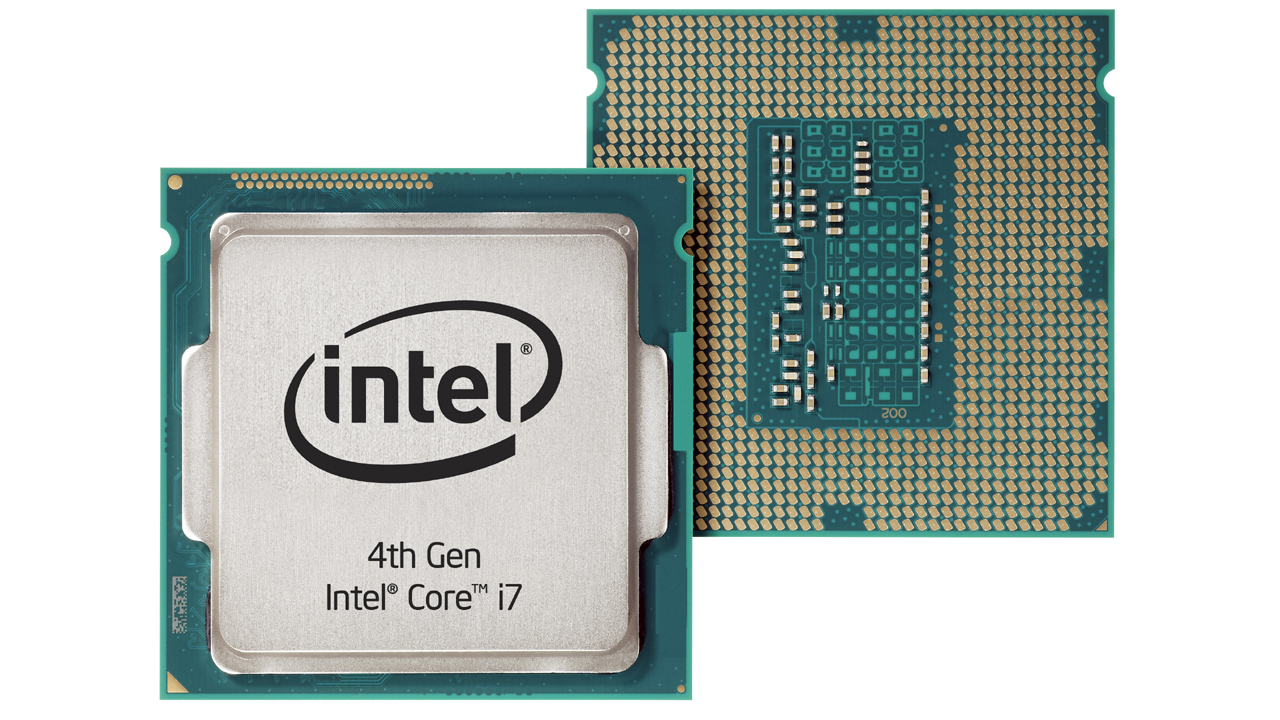
2. PCs make room tablets and smartphones
In case you haven't heard, PC sales are flagging, while sales of tablets and other mobile, not-quite-traditional computing devices are going strong. With that in mind, expect tablets, smartphones and the like to grab some spotlight time at this year's IDF.
Mobile devices have already gotten some billing in IDF's schedule of technical sessions, including a "Extending PCI Express Architecture to Smartphone and Tablet Devices" talk. What we'd really like to see is some news regarding fanless 4.5W Haswell variant that Intel has teased as becoming available in the coming months. After what Haswell did for the MacBook Air, imagine what it could do for the iPad.
3. Walking into wearables
There's no way around it: Wearables have sunk into the collective tech conscious. We need only turn to Google Glass, the rumored iWatch and recently trademarked "Galaxy Gear" to see this is the case.
For its part, Intel has confirmed its experimenting with "novel display devices," with Intel CTO Justin Rattner talking about a situation where you could look to your wrist to read a text message instead of yanking out your phone back in June. Intel is aware of the potential need to change silicon to match new types of tech, Rattner said, so the company's mental cogs are already turning on that conundrum.
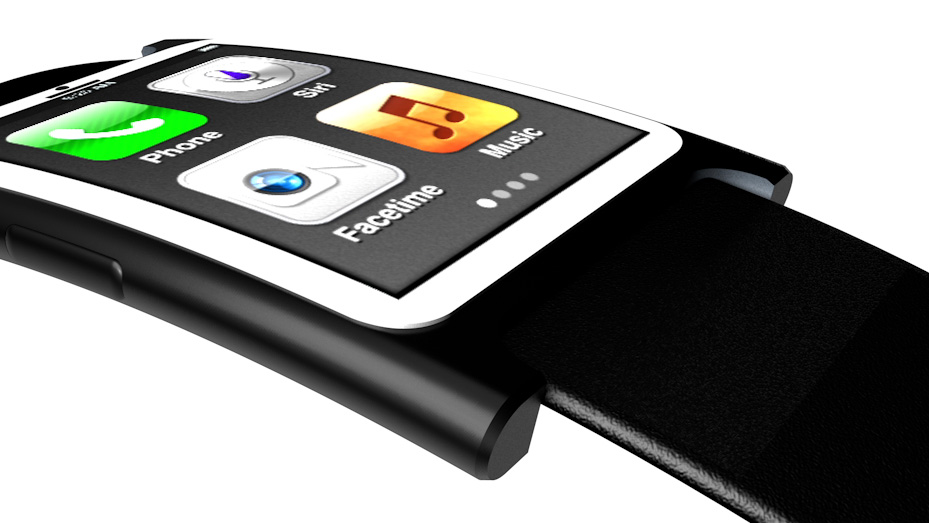
Will we see a new smartwatch at IDF? The chances are slim. However, with Genevieve Bell, an Intel Fellow at Intel Labs and Director of Interaction and Experience Research is heading the Day 3 keynote, we could hear plenty about the future tech.
Bell leads a team of social scientists, interaction designers and others in researching "new computing experiences that are centered on people's needs and desires," according to her IDF bio. Could she hold the key to the wearable conversation?
4. State of the Thunderbolt address
The introduction of Thunderbolt promised a universal port with amazing data transfer speeds, and the recent bump up to Thunderbolt 2 pushed it to rates of 20GBps. Now that we're entering the age of 4K video, those transfer speeds actually have a practical use, besides trying to trump USB on a spec sheet.
Despite its raw power, Thunderbolt hasn't taken the world by storm. It's not on a lot of everyday devices, but Intel has managed to sell Apple on it. The Mac maker has been one of its biggest proponents, putting the little port that can on its MacBook Air, and six of them on the dramatically redesigned Mac Pro (the one that looks like a shiny black cylinder).
Still, Intel has more selling to do, which is likely it has multiple sessions of its "Thunderbolt 2 Technology: New Capabilities and Features" talk scheduled. Godspeed little port, godspeed.
5. Unmasking more with Ultrabooks
Ultrabooks are sure to be a focus of this year's IDF. There are a few, not-so-subtle clues pointing us toward this expectation.
For one, on IDF's homepage, there's a dedicated link to the wonderful world of the two-in-one device. In a series of short clips, we see why Ultrabooks trounce traditional laptops. OK, it's a hokey marketing ploy, but every 'book shown is running Windows 8. Perhaps IDF holds a new Windows 8.1 product for expectant consumers? The timing would line up with W8.1's anticipated fall release.
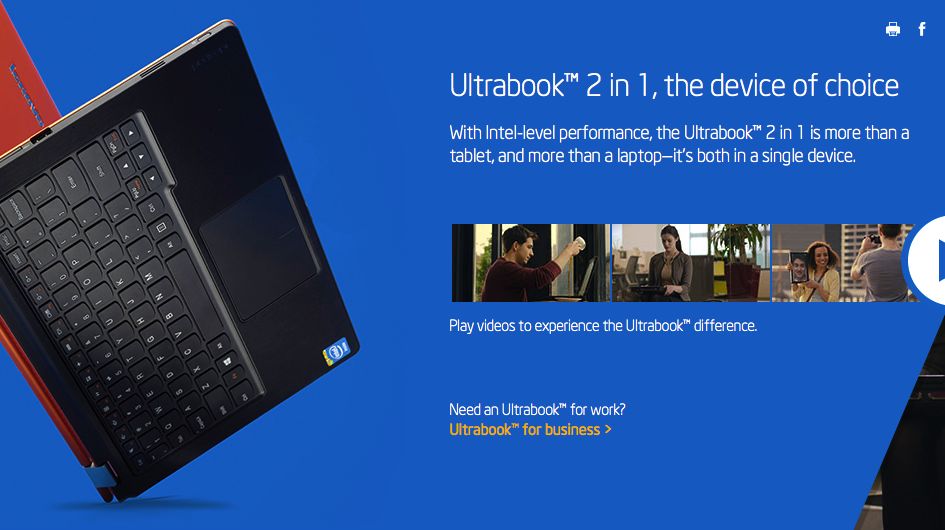
What's more, Kirk Skaugen, a senior vice president and general manager of the PC Client Group, is due to speak during Day One's keynote. According to his bio, Skaugen is "leading Intel's efforts in once again transforming the personal computer industry with the Ultrabook."
Once again? Transforming? Sounds like there's some product-related potential here, and we wouldn't be surprised if Haswell chips are leading the charge.
6. Haswell in the house
Speaking of Haswell - as if we haven't touched on it enough already - Intel can't let IDF pass without spending plenty of time on its latest and greatest chip.
Sure we'll hear about it's power saving prowess, but in a world where chips are sprouting more cores and competitors are nipping at its heels, how does Intel intend to keep Haswell competing for the long haul?
Part of that equation centers around new devices, such as the fanless tablets we discussed earlier. Intel teased these would be ready by year's end - could we get our first taste during IDF?
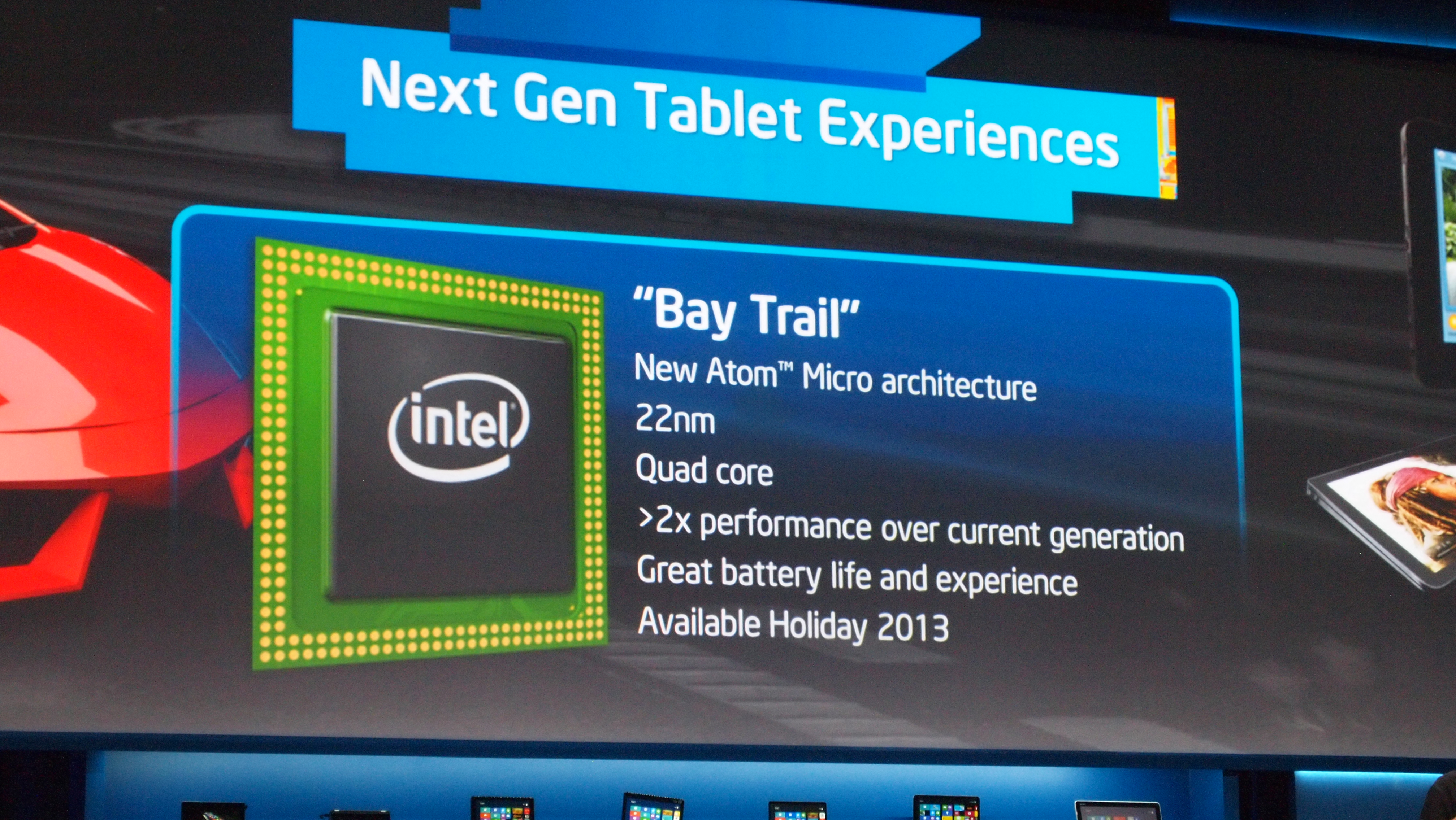
7. Hitting the Bay Trail
Haswell likely won't be the only processor pony hitching up at IDF. Intel's "Bay Trail" Atom chip stands a very good chance of making its debut.
Bay Trail is the company's next-gen 22nm quad-core tablet platform, supporting both Windows and Android. We heard about it at CES 2013,and it's due in devices by the holidays. Early September sounds just about right for some veil lifting.
Boasting double the computing performance of the existing Medfield Atom Processor Z2760 platform, Bay Trail should user in devices as thin as 8mm.
Intel has high-hopes for Bay Trail: "We believe what [Bay Trail] really does [is that] it allows us to get into these markets that we're not in, in a big way today," CEO Brian Krzanich said last month, as reported by PC World.
We'll keep our eyes on the Trail at the Forum.